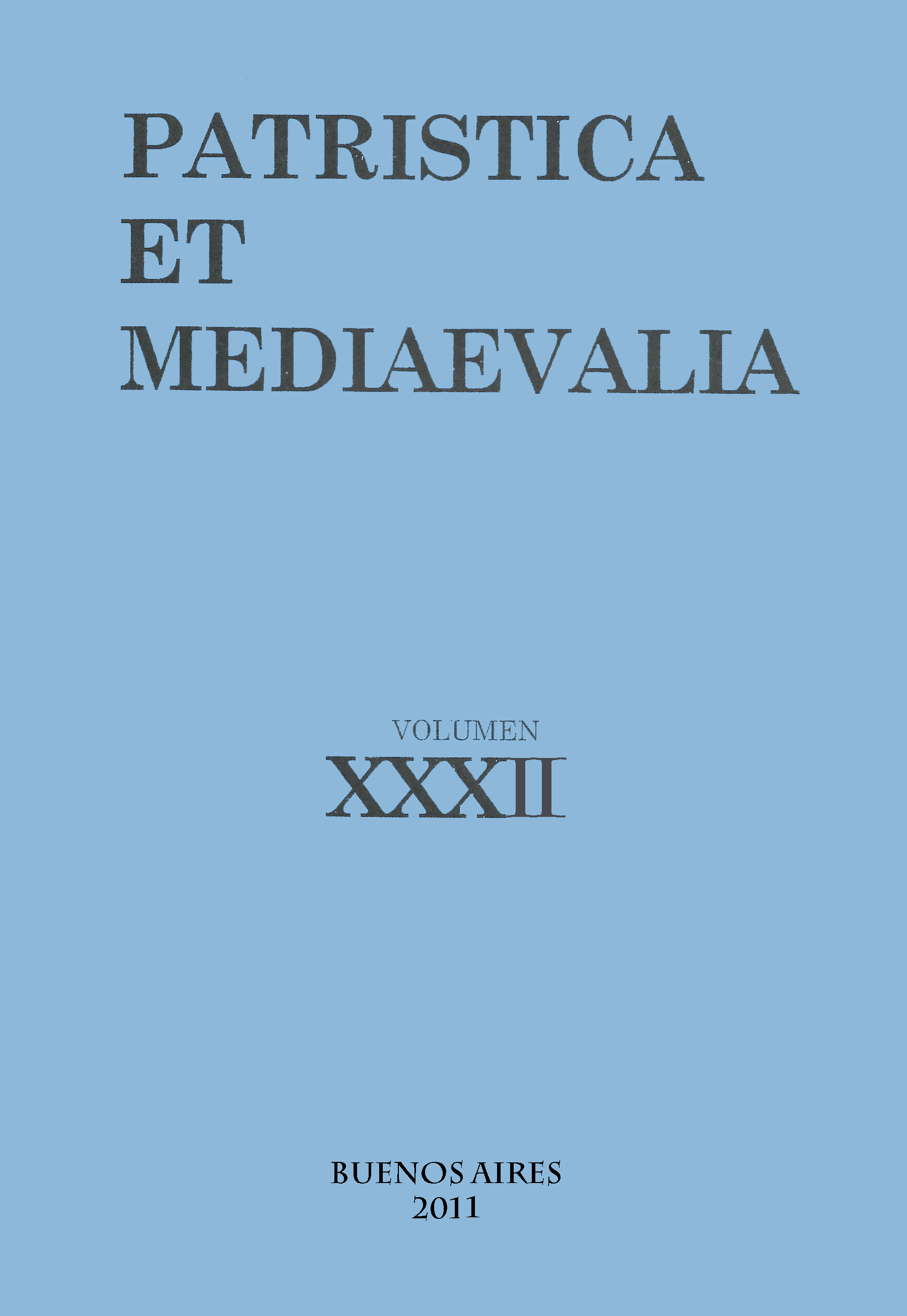Efficient Causality and Divine Concurrence in the Disputationes Metaphysicae of Francisco Suárez and in the Colombricense's Commentary to Aristotle's Physics
Abstract
In Francisco Suárez' Disputationes Metaphysicae and the Coimbran commentaries on Aristotle's works are to be found critical and innovative stances toward Aristotle and Aquinas. As transitional exponents of late Scholasticism at the turn of seventeenth century, their works are relevant case studies to understanding early-modern natural philosophy. Efficient causation is a central issue to such understanding. A particularly controversial point of the views on efficient causation in this background was the exact meaning of divine concurrence with secondary causes. This paper aims to explore Suarez' (part 1) and the Coimbrans' (part 2) accounts of efficient causation and divine concurrence in the context of Thomist concurrentism.Downloads
References
Ariew, R. (1999). Descartes and the Last Scholastics. Ithaca: Cornell University Press.
Clatterbaugh, K. (1999). The Causation Debate in Modern Philosophy 1637-1739. New York: Routledge.
Courtenay, W. (1973). The Critique on Natural Causation in the Mutakallimun and Occasionalism. The Harvard Theological Review, 66(1), 77-94.
Des Chene, D. (1996). Physiologia. Natural Philosophy in Late Aristotelian and Cartesian Thought. Ithaca/London: Cornell University Press.
Des Chene, D. (2000). On Laws and Ends: A Response to Hattab and Menn. Perspectives on Science, 8(2), 144-163.
De Muralt, A. (1991). L’Enjeu de la Philosophie Médiévale. Leiden: Brill.
Doney, W. (1973). Causation in the Seventeenth Century. En Wiener, P. (ed.). Dictionary of the History of Ideas, vol. 1. New York: Scribner, 294-300.
Feingold, M. (ed.) (2003). Jesuit science and the republic of letters. Cambridge: MIT Pres.
Feingold, M. & Navarro Brotons, V. (eds.) (2006). Universities and science in the Early Modern Period. Dordrecht: Springer.
Fuertes Herreros, J. L. (2006). La Escolástica del Barroco: presencia del Cursus Conimbricenses en el Pharus Scientiarum (1659) de Sebastián Izquierdo. En: Pacheco, M.C & Meirinhos, J. F. (eds.). Intellect et imagination dans la philosophie médiévale, Vol. 1. Turnhout: Brepols, 159-200.
Freddoso, A. (1994). God’s General Concurrence with Secondary Causes: Pitfalls and Prospects. American Catholic Philosophical Quarterly, 67, 131-156.
Freddoso, A. (1988). Medieval Aristotelianism and the Case against Secondary Causation in Nature. Morris, T. V. (ed.). Divine and Human Action: Essays in the Metaphysics of Theism. Ithaca/New York: Cornell University Press, 74-118.
Freddoso, A. (2002). Suarez on Metaphysical Inquiry, Efficient Causality, and Divine Action. Introduction to F. Suárez, On Creation, Conservation, and Concurrence: Metaphysical Disputations 20-22, translation, notes, and introduction by Alfred J. Freddoso. South Bend, I: St. Augustine's Press, xi-cxxiii.
Gracia, J. J. E. (1998). Suárez. En Gracia, J. J. E. (ed.). Concepciones de la metafísica. Madrid: Trotta, 101-124.
Hattab, H. (1998). The Origins of a Modern View on Causation. Descartes and his Predecessors on Efficient Causes. PhD Diss.: Univ. of Pennsylvania.
Hattab, H. (2000). The Problem of Secondary Causation in Descartes: A Response to Des Chene. Perspectives on Science, 8(2), 93-118.
Hattab, H. (2004). Conflicting Causalities: The Jesuits, Their Opponents and Descartes on the Causality of the Efficient Cause. Garber, D. & Nadler, S. (eds). Oxford Studies in Early Modern Philosophy. Oxford: Clarendon Press.
Hattab, H. (2007). Concurrence or Divergence? Reconciling Descartes’s Physics with his Metaphysics. Journal of the History of Philosophy, 45(1), 49-78.
Lohr, Ch. H. (1975). Renaissance Latin Aristotle Commentaries: Authors C. Renaissance Quaterly, 28(4), 689-741.
Marmura, M. (2005). Al-Ghazali. En Adamson, P. & Taylor, R. C. (eds.). The Cambridge Companion to Arabic Philosophy. Cambridge: Cambridge University Press, 137-154.
Martins, A. M. (2006). The Conimbricenses. En: Pacheco, M.C & Meirinhos, J. F. (eds.). Intellect et imagination dans la philosophie médiévale, Vol. 1. Turnhout: Brepols, 101-117.
Mayr, E. (1992). The idea of teleology. Journal of the History of Ideas, 53, 117-135.
Menn, S. (2000). On Dennis Des Chene’s Physiologia. Perspectives of Science, 8(2), 119-143.
Nadler, S. (ed.) (1993). Causation in Early Modern Philosophy. Cartesianism, Occasionalism and Preestablished Harmony. Pennsylvania: Pennsylvania University Press.
Oakley, V. F. Omnipotence, Covenant & Order: An Excursion in the History of Ideas from Abelard to Leibniz. Ithaca/ N.Y.: Cornell University Press.
O’Malley & al. (eds.) (2006). The Jesuits II: cultures, sciences, and the arts, 1540-1773. Toronto: University of Toronto Press.
O'Neill, E. (1993). lnfluxus Physicus. En Nadler, S. Causation in Early Madern Philosophy: Cartesianism, Occasionalism., and preestablished Harmony. Pennsylvania: Pennsylvania State Univ. Press, 27-55.
Pessin, A. (2003). Descartes’ Nomic Concurrentism: Finite Causation and Divine Concurrence. Journal of the History of Philosophy, 41(1), 25-49.
Schmitt, Ch. B. (2004). Aristóteles y el Renacimiento, prólogo F. Bertelloni, trad. S. Manzo, epílogo S. R. Rufino. Universidad de León: León (Schmitt, Ch. B (1983). Aristotle and the Renaissance. Cambridge/London: Harvard University Press)
Van Ruler, A. (1991). New Philosophy to Old Standards. Voetius’ Vindication of Divine Concurrence and Secondary Causality. Nederlands archief voor kerkgeschiedenis / Dutch Review of Church History, 71, 58-91.
Van Ruler, A. (1995). The Crisis of Causality: Voetius and Descartes on God, Nature, and Change. Leiden: Brill.
Wallace, W. (1972). Causality and Scientific Explanation, 2 vols. Ann Arbor: University of Michigan Press.
1. The authors who publish in this magazine accept the following conditions:
-
They retain the copyright and grant to the magazine the right of the first publication, with the work registered under the Attribution-ShareAlike 4.0 International License that allows third parties to use what is published as long as they mention the authorship of the work and the first publication in this magazine.
-
They can make other independent and additional contractual agreements for the non-exclusive distribution of the version of the article published in this magazine (eg. include it in an institutional repository or publish it in a book) provided that they clearly indicate that the work was first published in this journal.
-
They are allowed and recommended to publish their work on the Internet (for example on institutional or personal pages).
2. AutoArchive Conditions. Authors are allowed and encouraged to distribute post-print electronic versions of their manuscripts because it promotes their circulation, a possible increase of quotation and a major reach among the Academic community. Color RoMEO: blue.













